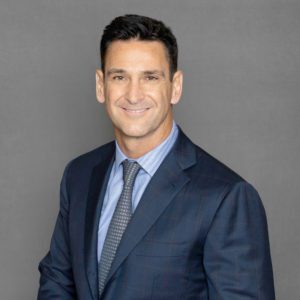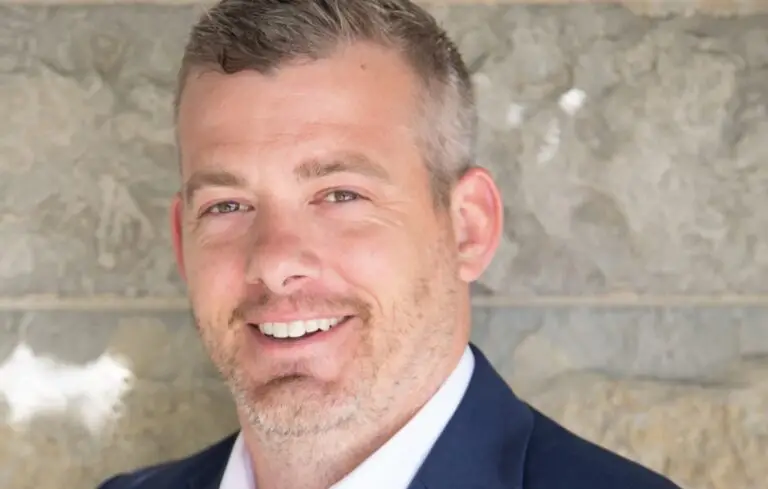The development and distribution of highly effective Covid-19 vaccines only 10 months after the World Health Organization declared the disease a global pandemic was an extraordinary achievement of human intellect and ingenuity. Ironically, their development, while awe-inspiring, also demonstrates why the current approach to the life sciences and biomedical innovation is outdated.
If the pharmaceutical companies racing to develop these vaccines had relied on the same conventional business and development model and timelines that have been in place over much of our lifetime, we wouldn’t be where we are today. We’d still be inside our homes binge-watching Hulu, waiting (possibly for years) for a vaccine. That’s because the current approach, which the development of the vaccines fortunately transcended, is just not built to allow people and companies to innovate—and innovate quickly.
While there obviously have been many life-altering successes that have resulted from this model over the years, the truth is, it is no longer able to deliver the breakthrough solutions we need often enough and fast enough to meet society’s most urgent and growing challenges. Keep in mind that despite the time, money and other resources that have been invested, we still live in a world with at least 10,000 diseases[1] and, of those, only about 500 have any treatments approved by the U.S. Food and Drug Administration (FDA).[2] In other words, we’re still in the dark when it comes to 95% of known diseases.
As a society, we do not have to be bound by the way progress has been made in the past if it’s no longer consistently producing transformational results. The world is changing too quickly, and science and technology are creating greater, more profound opportunities to save the world in ways no one ever thought possible. The life sciences model that got us to today no longer works for tomorrow. We need a life sciences model formulated for tomorrow.
So I have a better idea—an innovative and proven-effective new approach to the life sciences built specifically to bring to life the onslaught of scientific and technological breakthroughs in biology, including cell and gene therapy; evolution-based synthetic biology, artificial intelligence and many others, as the backbone not only of a new way of thinking, but a new wave of solutions to the world’s greatest challenges.
Not only is the idea itself an innovative business model, it’s a model for success. It will use these breakthroughs in relevant, meaningful and practical ways to inspire hope in the millions of people around the world living with debilitating diseases for which there are no, or entirely inadequate, treatments.
In fact, the model we’ve created at Paragon Biosciences is resulting, and will continue to result, in therapies that not only will help us treat these diseases, but potentially cure them or prevent them altogether. As importantly, it is helping us deliver never-before-seen biology-based solutions for a host of seemingly intractable challenges that threaten human existence, from climate change to food insecurity to energy use and more.
Meeting the future head on
The key to the Paragon approach is our unique company-building model. We bring out the best in our team of visionaries to drive remarkable innovation, resulting in success.
We hire top talent—passionate experts in their field—who are empowered and challenged to drive innovation that leads to incredible scientific breakthroughs. Our team tackles the inconceivable, channeling the “what if” thoughts and charting the course to make them a reality. Extraordinary things can and are happening right now and we have the unique opportunity to reimagine the future.
We encourage all colleagues to take on new challenges, work beyond their comfort zones and explore new areas, whether it is related to science, business or operations. The energy, creativity and personal accountability this approach creates fuels the future of Paragon Biosciences.
Our organizational model is the framework through which we investigate and identify unmet needs in our Paragon Innovation Labs. It is the foundation upon which we ideate boundary-breaking scientific and technological solutions and how to deliver them either on our own or in conjunction with other disruptors around the world. Then we not only invest dollars to launch new, independent companies based on what we discover—each laser-focused on creating transformative change—we invest human capital across a wide variety of functional areas to build them. That’s how we ensure that nothing stands in the way of the science and technology that drives each of them forward.
Our approach allows our companies to focus on diseases and societal challenges traditional bioscience companies will not. In the case of medical conditions, for example, we’re able to use this approach to focus on dermatologic diseases, such epidermolysis bullosa, which is a devastating skin disorder, and retinitis pigmentosa, a serious disease that causes damage to eyes and eyesight. We also focus on neurological conditions such as adult stuttering and pediatric Tourette syndrome, among others.
Therapies for these and other unmet needs—no matter how pioneering—will not be commercial blockbusters by traditional large pharma standards; we know that. They will, however, be blockbusters by our standards. First, in terms of the impact they have on patients, their caregivers and the health care system overall. And second, in terms of how we can apply what we’ve learned along the way to push the boundaries even further in order to deliver revolutionary solutions to other complex medical and more broad societal needs.
The conventional model, which intended to create life science innovations that improve people’s lives, doesn’t prize this sort of success and, in turn, doesn’t create it. Our companies do.
The proof lies in the seven visionary companies we’ve launched over the past four years, with one having a successful IPO in less than three years of existence. Furthermore, Paragon has an 80% to 90% approval rate on new drug applications, far exceeding that of the traditional pharma industry. These approvals include Wakix (pitolisant), the only approved treatment for excessive daytime sleepiness in adult patients with narcolepsy that’s not scheduled as a controlled substance by the U.S. Drug Enforcement Administration. Our technology, QuantX, is the first-ever FDA-cleared breast abnormality diagnostic system using artificial intelligence.
Ultimately, the large bioscience and pharmaceutical companies have unparalleled branding and distribution expertise, but are perhaps too reliant on an approach that doesn’t drive true transformation. With small, high-potential enterprises, often spearheaded by scientists and healthcare professionals unbound by conventional thinking, it’s just the opposite. They have the brilliance, imagination and vision, but not access to an interdisciplinary breadth of talent across the bleeding edge of science and technology—computational biologists, bioinformaticians, even experts in insecticidal proteins, if necessary, and on and on—let alone the back office infrastructure, financial resources or business acumen they need to bring it all together to the point of commercialization. An approach like ours offers it all.
If developed to reach their promise, our scientific and technological breakthroughs— supported by a model that uses them like fuel, and by people unencumbered by the past and driven by a vision for different kind of future—not only may profoundly change the trajectory of disease for generations to come, but could change the world forever.
[1] https://www.washingtonpost.com/news/fact-checker/wp/2016/11/17/are-there-really-10000-diseases-and-500-cures/
[2] https://www.washingtonpost.com/news/fact-checker/wp/2016/11/17/are-there-really-10000-diseases-and-500-cures/







